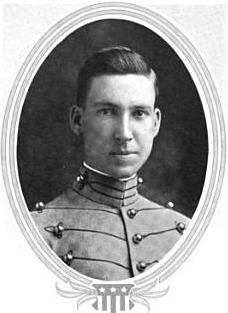
Elijah D. Buckner
Immortality of Animals and the Relation of Man as Guardian
「1903」Elijah D. Buckner, Immortality of Animals and the Relation of Man as Guardian, from a Biblical and Philosophical Hypothesis 「Google Books」(Philadelphia: George W. Jacobs & Co., 1903).
The philosophy set forth in this books extends the principle of humanity to all animal life, and shows the near relation of man to other animals in physical and mental phenomena. The doctrine is advocated that we are morally bound to respect the feelings and rights of animals as descendants from the same Creator, even as we do those of our human associates. (Preface)
The writing of this book is a duty which was deeply impressed upon my mind many years ago, and which has been more deeply impressed since by reason of the moans and cries of suffering animal life by which I have been surrounded. I have not ambition to gratify in offering the book to the world beyond the good it may accomplish, in promoting kindness and preventing cruelty.…As there is a growing demand for humane literature, it is hoped that this work may be given a wide circulation by the friends of the cause. Finally, I offer this book to the world with the prayer that God in His infinite goodness and mercy may put it into the hearts of mankind to be more kind and merciful to all living creatures. (Preface)
Some would prefer to say that animals were senseless, automatic machines, without any rights or sense of feeling, rather than to admit that they have immortal souls. But no man should be so self-important as to dispute God’s right to give other animals physical and mental functions in any degree or kind that His omniscience may choose. (Anatomical Analogy of Animals—Comparative Psychology)
The Bible, without the shadow of a doubt, recognizes that animals have living souls the same as man. Most of the quotations given are represented as having been spoken by the Creator Himself, and he certainly knows whether or not He gave to man and lower animals alike a living soul, which of course means an immortal soul. (Interpretation of the Bible.—Creation)
Man forms only a part only of the animal kingdom, and the Savior has enjoined him to be merciful to all creation even as his Father in heaven is merciful. The Bible plainly teachers that if we expect mercy we must be merciful, not only to our fellow-creatures, but to all inferior animals. Every act of cruelty to animals as well as from man to man, is certainly offensive to the Creator of all beings. The lower animals look up to man for happiness as man looks up to God. In advocating the cause, then, of these creatures by which we are everywhere surrounded, in lifting up our voices in behalf of these beings that cannot plead for themselves we are surely not overstepping the requirement of God who has enjoined upon us the duty of opening our mouths for them. (Man as Guardian of the Lower Animal—Moral Duty to Be Kind)
Do not justice and rectitude require that we regard the rights of every living creature, and furnish them a competence of sustenance and comforts when we have deprived them of the means of procuring it for themselves? Every place in the Bible where God has revealed His will on this subject is distinguished for its tender care of the destitute, the afflicted, and the helpless. (Means of Preventing Cruelty—An Early Humane Education Necessary)
It is the business of a proper education to direct the young mind to a proper regard for the rights and happiness of all living things.…The way to make the world better, and to abolish cruelty, crime, war and poverty, is by instituting a more humane and better system of education. (Means of Preventing Cruelty—An Early Humane Education Necessary)
The most lamentable trait in human nature is man’s willingness to sacrifice the sense of right upon the altar of cruelty in order to advance his personal interest. (Some Prominent Evils—A Necessity for a Future Reward)
Animals have rights. (Some Prominent Evils—A Necessity for a Future Reward)
Contents
I. Interpretation of the Bible.—Creation
II. The Garden of Eden.—The fall of man and the lower animals.
III. The Christian Era.—The restoration from the fall.
IV. The New Testament animals’ best friend.—Christ as a humane teacher
V. The Bible teaches the immorality of animals.—Opinions of some great authors.
VI. Animals promised a Paradise.—Commanded to praise their Creator.
VII. Natural theology.—Philosophy of the soul.
VIII. Physiology and natural theology.—The body governed by immaterial forces.
IX. Instances of animal intelligence.—Power of reasoning.
X. Instinct is immortal.—Difference between educated and uneducated animals.
XI. Anatomical analogy of animals.—Comparative psychology
XII. Chemical composition of animals.—Cruel anatomists.
XIII. Infelicity of animals.—They possess a moral sense.
XIV. Future abode of animals—A plurality of worlds.
XV. Man as guardian of the lower animals.—Moral duty to be kind. Bible enjoins kindness—Many instances of cruelty—The cries and moans of poorer suffering animals plead for mercy—Man is responsible for their sad condition
XVI. Means of preventing cruelty.—An early humane education is necessary. Some of the forms of cruelty—Man should seek a better pastime than sporting at the sacrifice of suffering—Kindness is an indication of greatness.
XVII. Some prominent evils.—A necessity for a future reward.
Duty of Christian people—No excuse for wanton cruelty—Laws should be made and enforced against it—Animals have rights—God will finally redeem all creatures.



